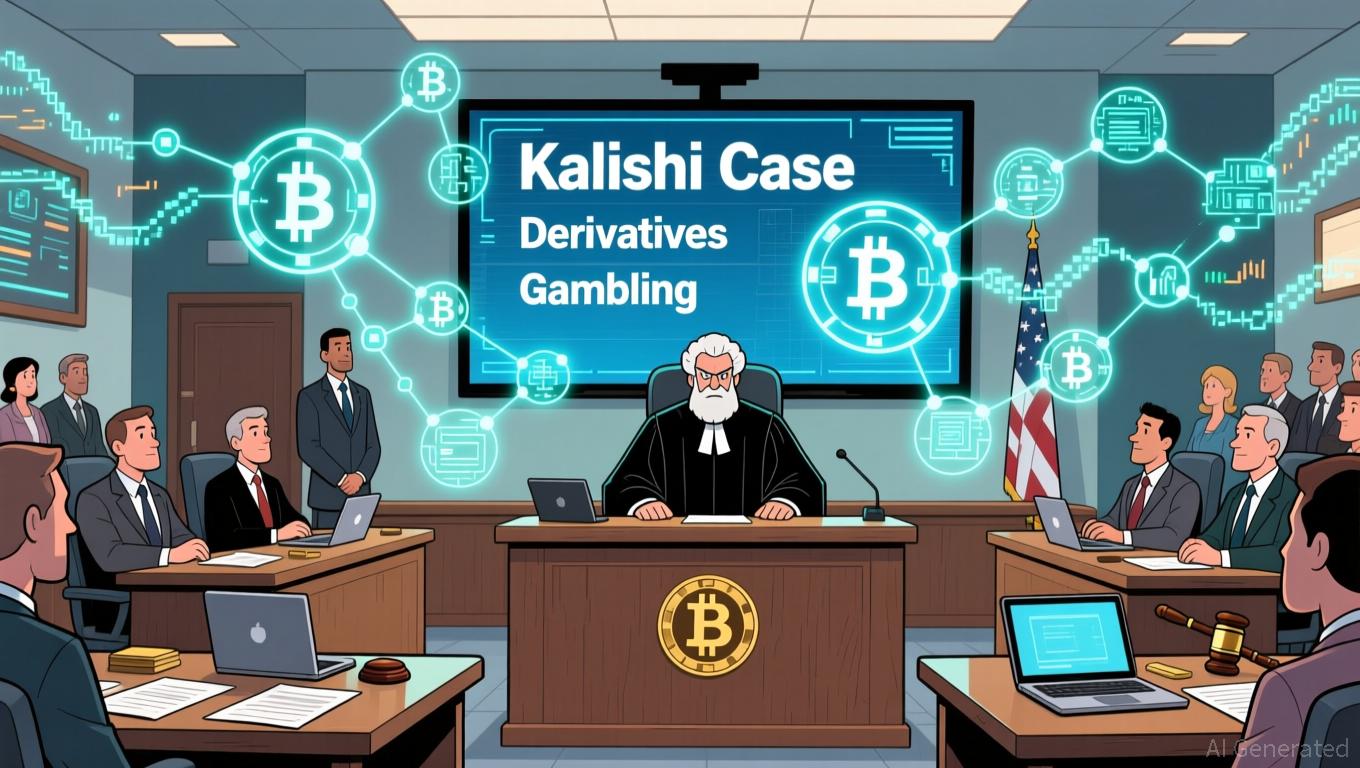Blockchain Betting's Legal Challenge: Is It Considered Gambling or a Derivative?
- NBA star Tristan Thompson advocates blockchain-based sports prediction markets, aligning with DeFi's potential to transform fan engagement. - Kalshi faces legal scrutiny as a federal judge questions whether its event contracts qualify as derivatives under U.S. commodity laws. - Blockchain startups like Ideosphere and Portage Biotech explore prediction markets for scientific funding, leveraging tokenized assets and staking revenues. - Regulatory ambiguity over derivatives vs. gambling risks stifling innov
Tristan Thompson, once an NBA standout and now a blockchain innovator, has become a prominent supporter of sports prediction markets, using his influence to showcase how decentralized finance (DeFi) could transform the sports betting landscape. His recent remarks and financial backing reflect a wider movement within the industry, as firms such as Kalshi and Ideosphere work through regulatory and legal complexities to broaden the reach of prediction markets. Still, the future remains uncertain, especially as courts deliberate on whether these platforms comply with current U.S. commodity trading regulations.
The regulatory environment for sports prediction markets shifted significantly in late November when a federal judge in Nevada expressed doubts about Kalshi's argument that its offerings should be considered derivatives instead of gambling products. In a legal dispute over the company's compliance with the Commodity Exchange Act, Judge David C. Borman questioned if Kalshi's event contracts—which are essentially bets on sports results—could be categorized as swaps or futures. "Your definition seems so expansive that almost anything could be labeled a swap," Borman commented,

The larger economic backdrop also supports the growth of prediction markets. While AI-related stocks have experienced instability amid doubts about their long-term prospects, blockchain-driven platforms are becoming popular alternatives to traditional betting. For instance,
Thompson's support fits within these developments, as he champions blockchain-based solutions that emphasize openness and user autonomy. Nonetheless, the industry's expansion depends on clarifying regulatory uncertainties. The outcome of the Kalshi case, in particular, could establish a benchmark that either validates or restricts the evolution of prediction markets.
Disclaimer: The content of this article solely reflects the author's opinion and does not represent the platform in any capacity. This article is not intended to serve as a reference for making investment decisions.
You may also like
Bitcoin News Today: Are Bitcoin Futures Indicating a Market Bottom or a Potential Trap for Investors?
- Rare Bitcoin futures signal emerges as open interest drops below $8B and funding rates turn negative, sparking debate about a potential market bottom. - Derivatives experts note this rare alignment of metrics historically precedes crypto market consolidation or reversals, but caution against over-interpretation. - On-chain data shows whale accumulation rising 12% in a month, contrasting with broader market weakness and weak Bitcoin fundamentals. - Analysts warn macroeconomic factors like inflation could
Druckenmiller’s $77 Million Investment Sparks Momentum in Blockchain Lending, Analysts Raise Their Projections
- Billionaire Stanley Druckenmiller's $77M investment in Figure (FIGR) triggered a 15% stock surge, signaling institutional confidence in its blockchain lending model. - Analysts raised price targets to $55-$56 after Q3 results showed 70% YoY loan growth to $2.5B and 55.4% EBITDA margins, surpassing estimates by 40-200%. - Figure's AI-driven capital-light model and RWA tokenization (e.g., $YLDS stablecoin) are highlighted as growth catalysts, with 60% of loans now via its Connect platform. - Institutional
Solana Latest Updates: VanEck's Collaboration on a Staked Solana ETF Reflects Growing Institutional Trust in Blockchain's Prospects
- VanEck partners with SOL Strategies for staking in its new Solana ETF (VSOL), enhancing institutional blockchain integration. - SOL Strategies' ISO-certified validators secure $437M+ in assets, chosen for operational expertise and institutional focus. - VSOL offers staking rewards with fee waivers until $1B AUM, reflecting growing demand for Solana-based funds like Bitwise's BSOL. - VanEck's $5.2B digital asset portfolio expands with VSOL, though staking risks and regulatory uncertainties remain for inve

Blockchain and AI Open Up Pre-IPO Wealth Opportunities to Everyday Investors
